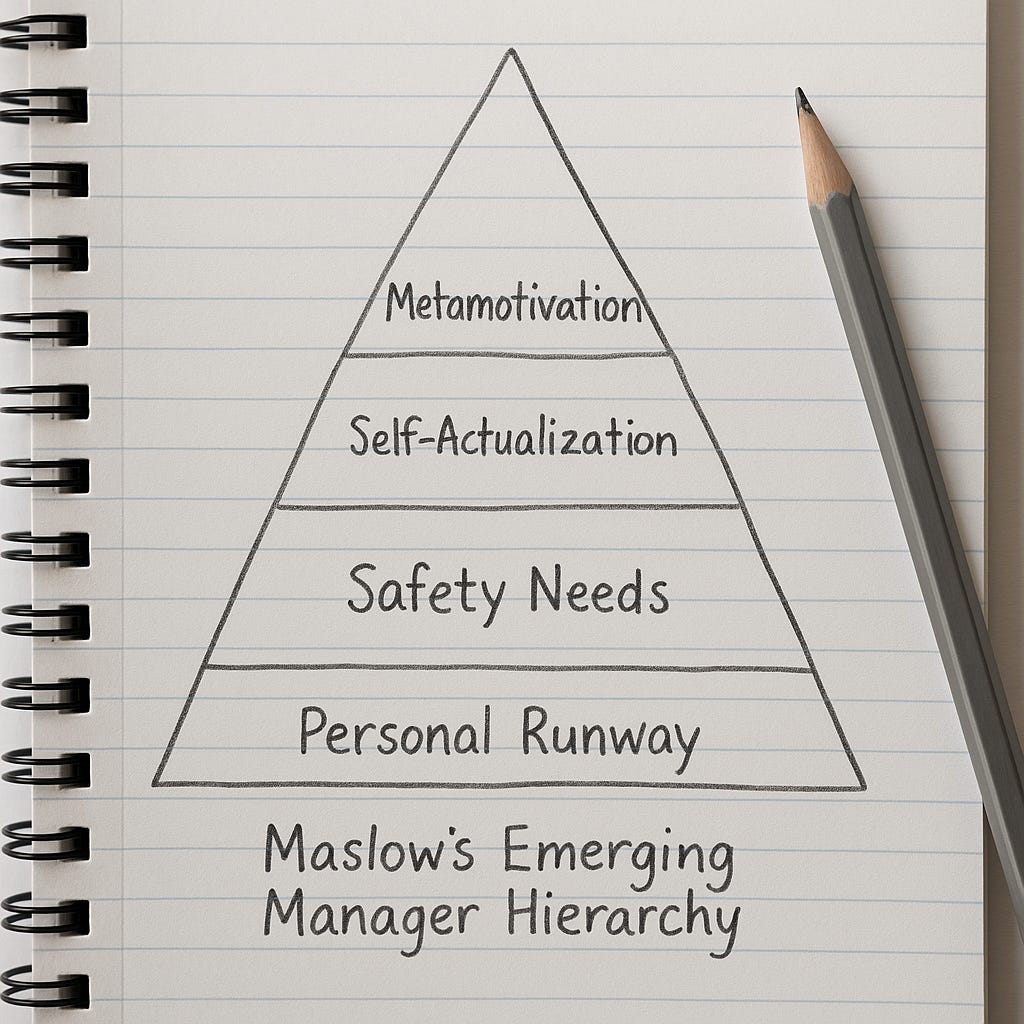The First Raise No One Talks About
A reality check for emerging managers to protect their margin before they chase the moon
Everyone in venture capital loves to talk about ambition.
Not enough people talk about runway. Personal runway. Emotional runway.
When I explain what I’m building with Stresswood, I break it into four workstreams:
Building a supreme team
Building trust with two stakeholder groups that matter most, elite founders and LPs
Adding to a clear, relevant track record through larger, targeted SPVs
And maybe the most important: building my own personal runway
That last one doesn’t get enough airtime.
Being a fund manager is often framed as a prestigious job for people who have already made it. For many of us, especially emerging GPs, we don’t have that flex. Venture Capital is a profession. And a high-stakes risk. Particularly if you’re the primary earner or the one in your family with the most economic potential. That’s many of our (read: emerging managers) realities.
I’ve said this before: you can truly test your ambition only when your basic needs are met. Maslow’s hierarchy is still the blueprint. Physiological needs, safety, belonging, esteem, and self-actualization. Most people only think about the top tier when they talk about entrepreneurship. But if the bottom layers are shaky, if you’re worried about mortgage or rent, burned out, or disconnected, your decision-making warps.
You rush.
You pick the wrong LPs.
You perform before you’re ready.
You take the safe, compromising deal over the risky, right one.
That’s not a strategy. That’s not intentional. That’s survival.
For me, personal runway is both financial and relational. It’s two years where I can breathe, bet big, and build Stresswood with intention. It’s why I’m advising, consulting, and doing targeted part-time work, not just to pay bills, but to deepen the relationships that will matter when it’s time to raise.
Your version of personal runway might be different, such as emotional stability, time with your kids, or time without them. Whatever it is, you can’t ignore it. You can’t borrow from your foundation and expect your firm to stand.
This work demands hustle, grit, and an obsession with the craft. It also demands margin.
And margin requires means.
That’s not weakness. It’s wisdom.
—Earnest



